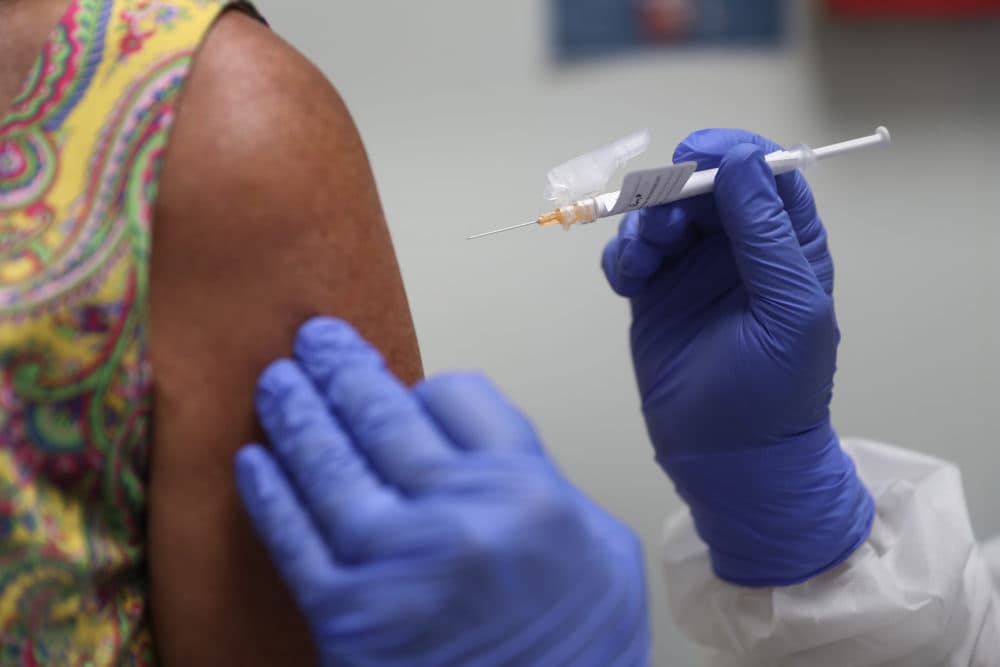Advertisement
Coronavirus Coverage
Meet A Group Of Volunteers Bringing The Vaccine Into Boston Communities With Low Rates

Nearly half of Massachusetts residents are now vaccinated against the coronavirus, but the populations that remain unvaccinated are proving trickier to reach.
In order to boost low vaccination rates that persist in some communities around Boston, a group of volunteer doctors, nurses and medical students is borrowing "get out the vote" techniques from politics to bring the vaccine where the demand is.
Dr. Alister Martin is an emergency room physician at Massachusetts General Hospital, and a founder of the GOTVax program.
Highlights from this interview have been lightly edited for clarity.
Interview Highlights
On the GOTVax initiative and how it works
The Initiative is called 'GOTVax,' which is sort of sort of a cheesy name, but it stands for 'get out the vaccine,' and that really sort of describes the core of this program. We use political organizing techniques, text banking, phone banking, canvasing or door knocking. Except the only difference is that we have physicians, nurses, medical students, social workers ... coming over to do this work and volunteer their time.
On why it's being run like a get out the vote effort during a political campaign
Some of the traditional ways we've been doing vaccination distribution — things like the mass vaccination sites or things like having folks go to the hospital or go to the community [health] centers — those traditional techniques don't necessarily penetrate as well into communities of color. And what we do is, we set up these vaccine pop-up clinics right in the heart of communities. Sometimes right in the lobby of a public housing unit, or right in a well-known church or a well-known community center.
On whether they've seen results
We've vaccinated nearly 4,000 community members across Boston, with over 80% of those folks coming from communities of color.
... The number one barrier right now that we're seeing is access. At one of our most recent clinics, the average income for the household was $16,000 — not average income for each individual, for the entire household. These are folks who struggle to make it to the health center or the hospital. They're not hopping in an Uber and getting down to the Reggie Lewis [Center]. These are folks who, if we don't bring them the vaccine, they may not ever get vaccinated.
This segment aired on May 12, 2021.

